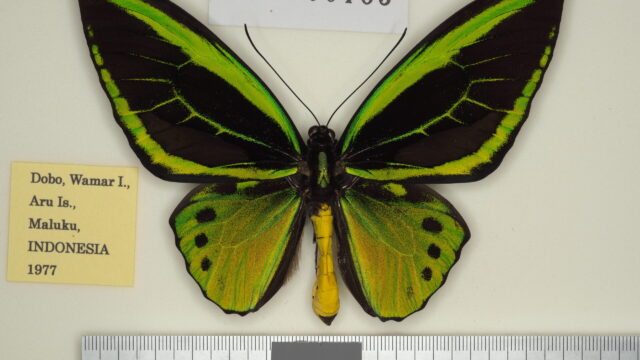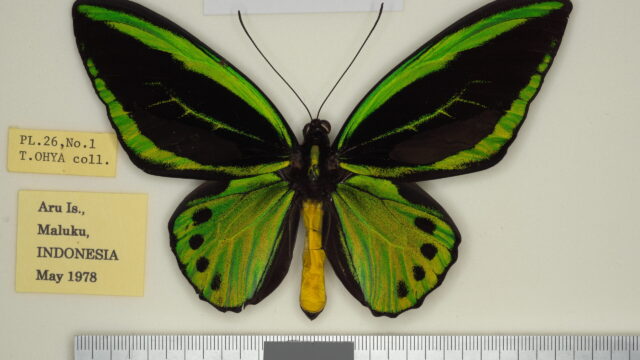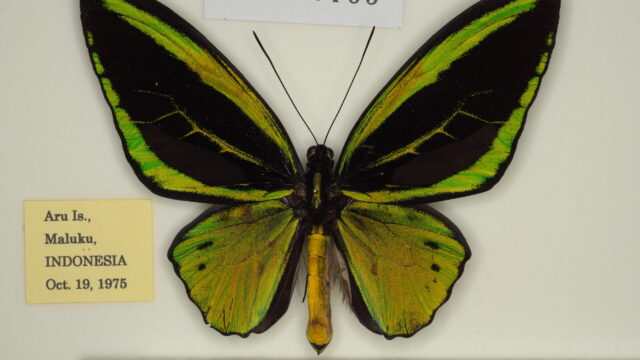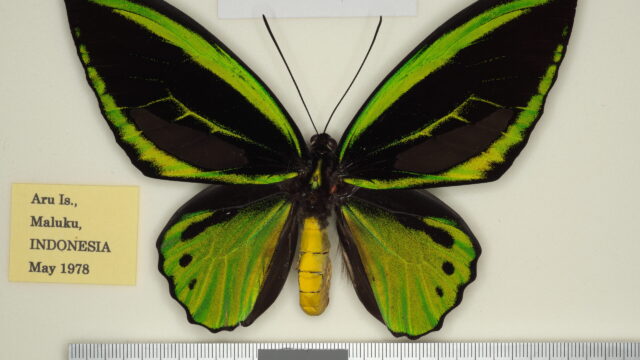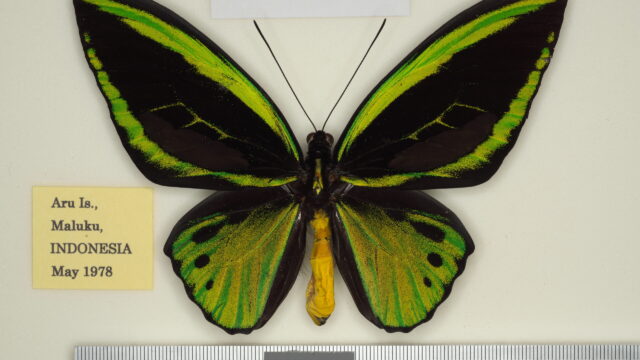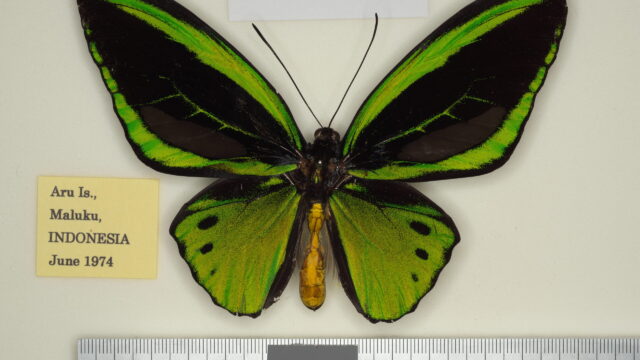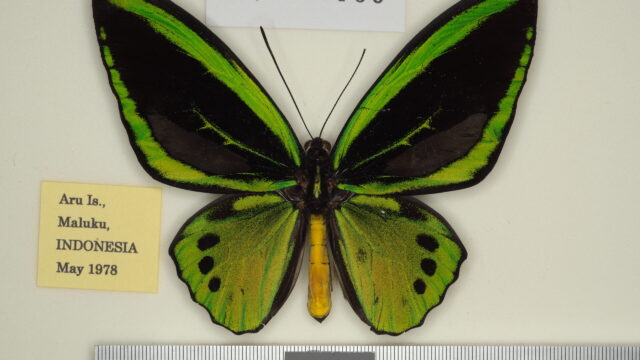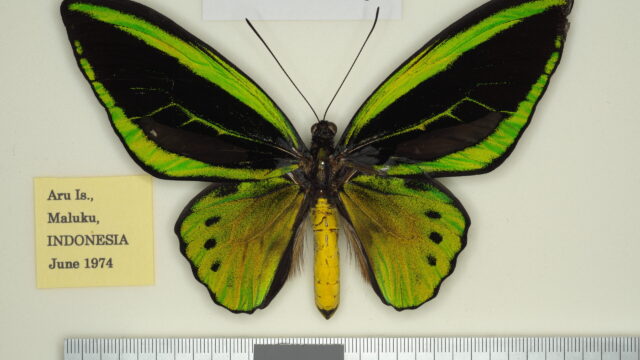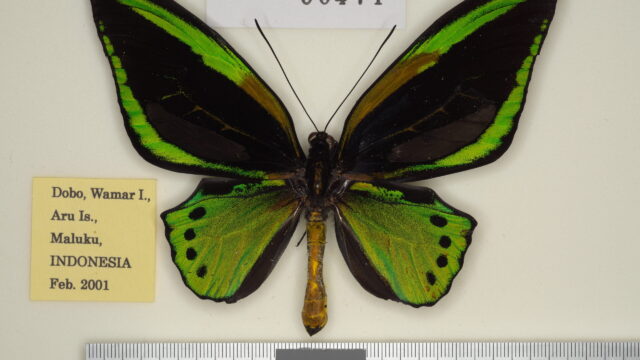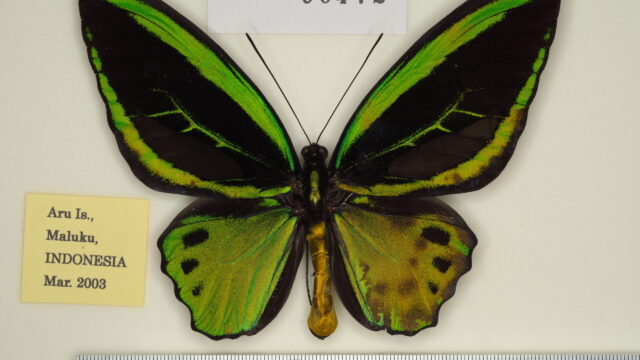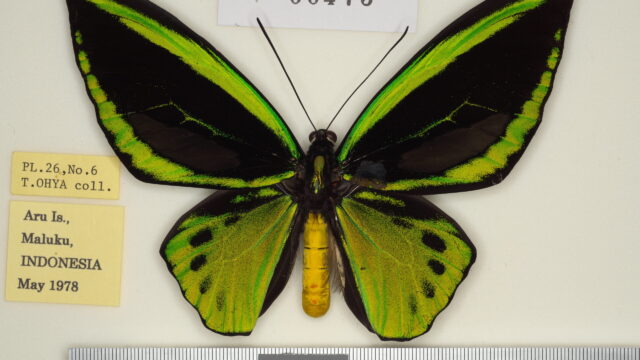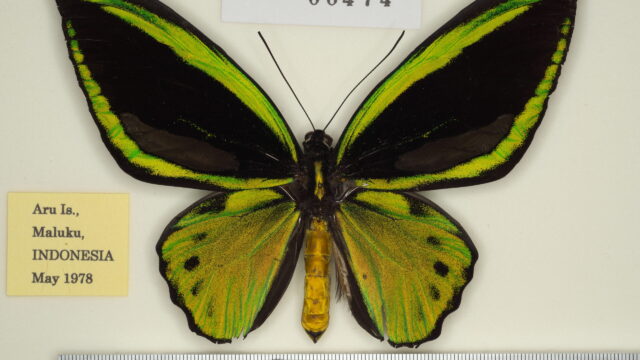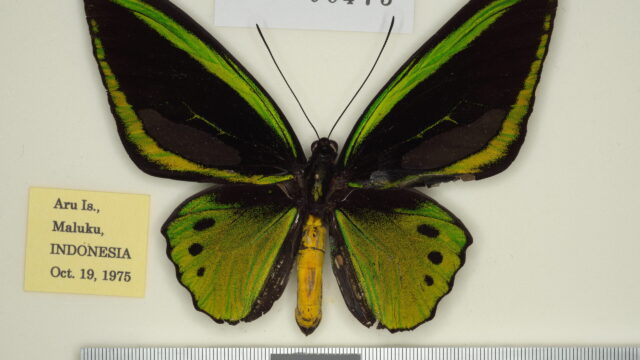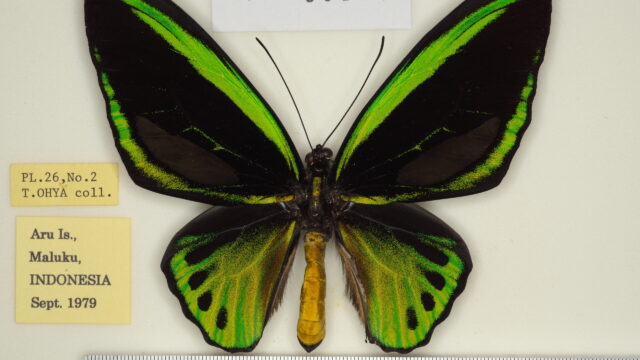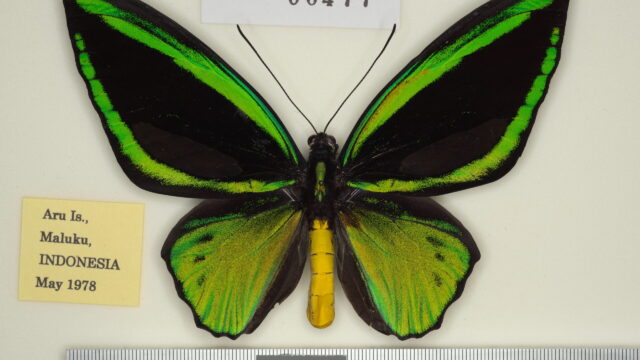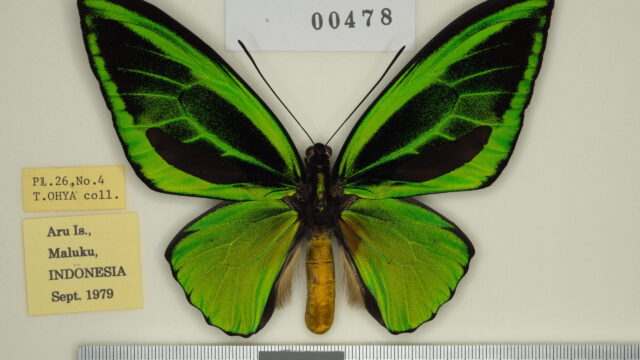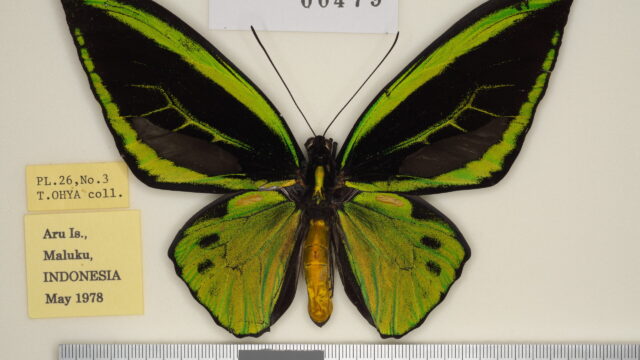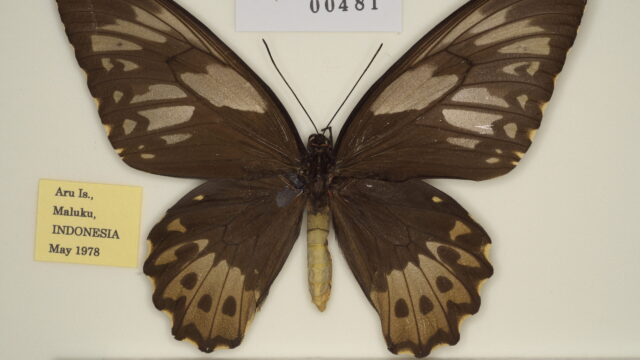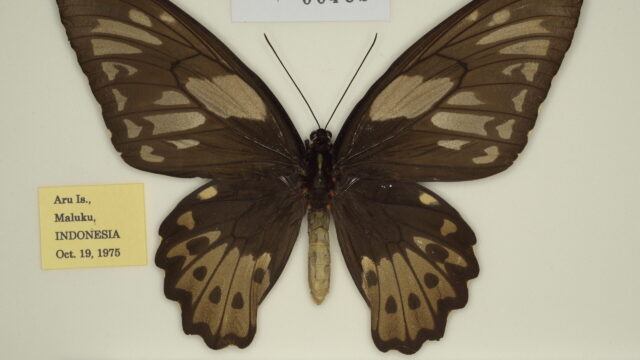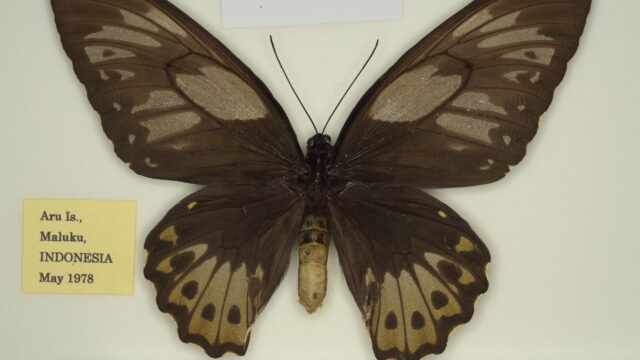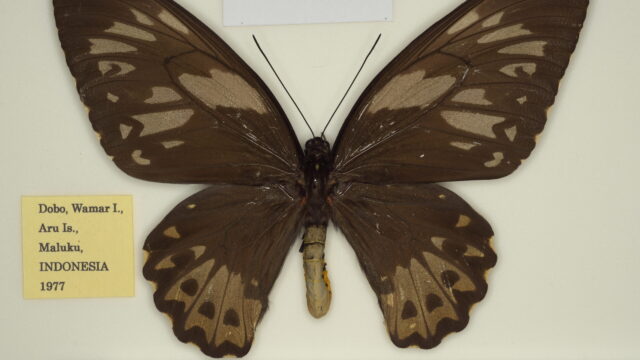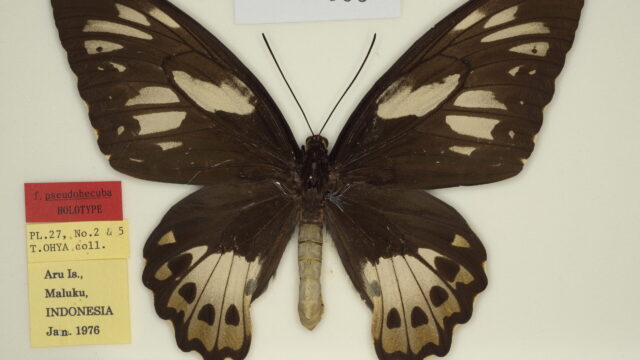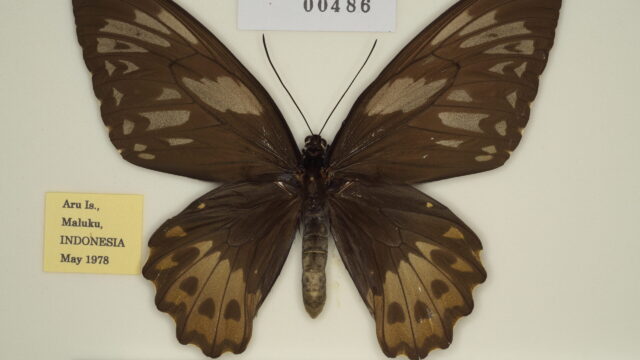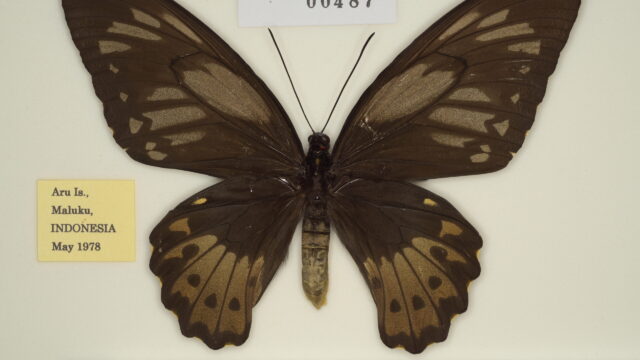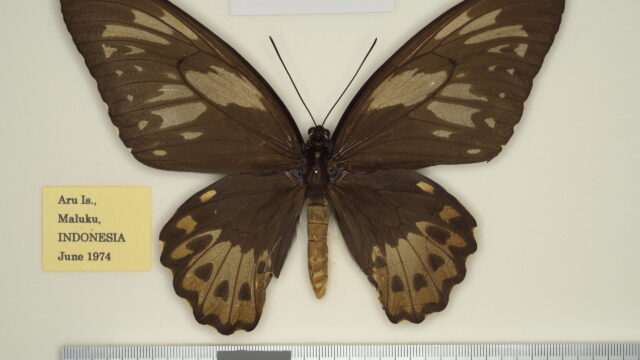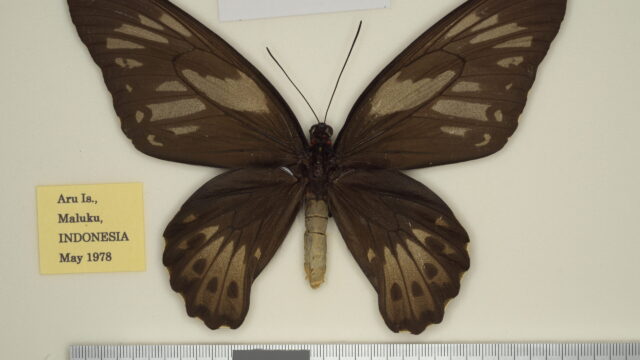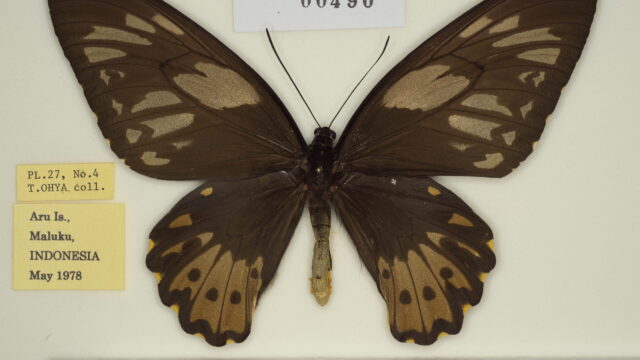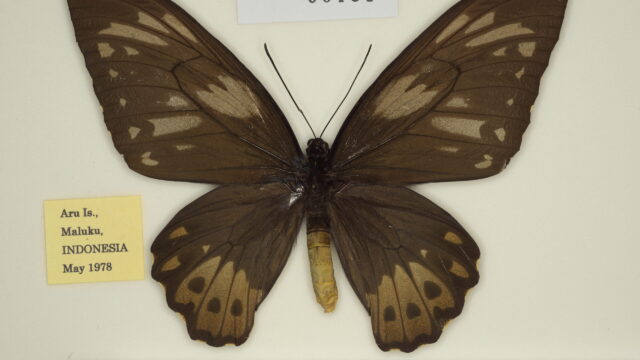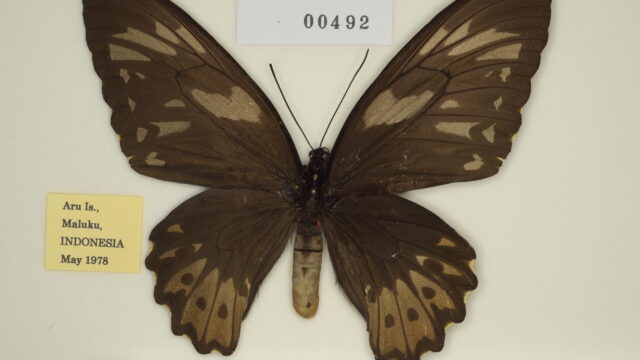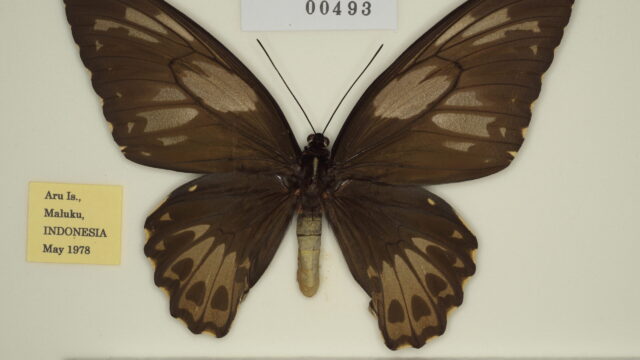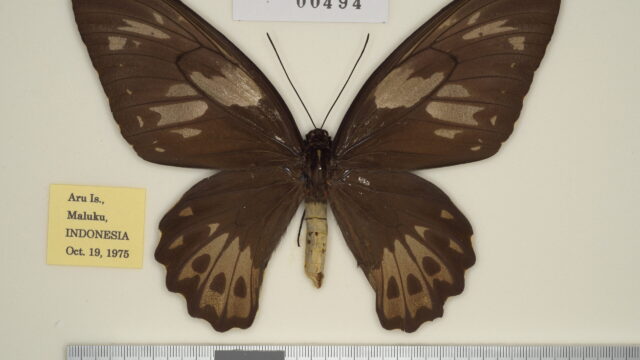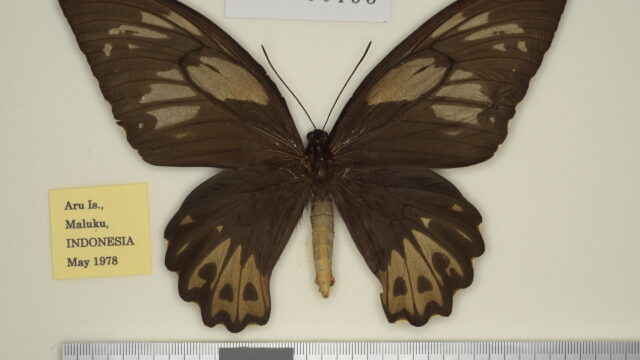13. Ssp. arruana Felder, 185915) [♂, ♀]
= eumaeus Rippon, 189246) [♂, ♀] (Aru Islands)
(Distribution)[Map 18]
INDONESIA [Maluku] Aru Islands (Kola Is., Wokam (=Tanahbesar) Is., Wamar Is. Kobroor Is., Maikoor Is., Koba Is., Trangan Is.)
(Episodes of discovery and original description)
Wallace, the first discoverer, collected 1 ♂ and 3 ♀♀ on the Aru Islands from January to March 1857. He later (1869) described the situation as follows: “The next two days were so wet and windy that there was no going out, but on the succeeding one the sun shone brightly, and I had the good-fortune to capture one of the most magnificant insects the world contains, the great bird-winged butterfly (Ornithoptera poseidon). I trembled with excitement as I saw it coming magestically toward me, and could hardly believe I had really succeeded in my stroke till I had taken it out of the net and was gazing, lost in admiration, at the velvet black and brilliant green of it wings, seven inches across, its golden body, and crimson breast. It is true I had seen similar insects in cabinets, at home, but it is quite another thing to capture such one’s self – to feel it struggling between one’s fingers, and to gaze upon its fresh and living beauty, a bright green shining out amid the silent gloom of a dark and tangled forest.” The specimen went to Felder, who described it as a new species of Ornithoptera in 1859.
(Characteristics)
This subspecies, like ssp. hecuba, is thought to have diverged from ssp. poseidon during the same period (Pleistocene). Therefore, the two subspecies are very similar, but can be distinguished by the following points.
(Spotted pattern)
♂: The green color of the patches is tinged with blue on both sides. The golden spot in the subcostal space of HW may be absent, and black marginal border is narrower.
♀: As in ssp. hecuba, there are two forms – the dull (=pale) form and the contrasted (=dark) form, but the dull form is more common, and the contrasted form is extremely rare. The dull form has narrow wings, and the anal angle (=tonus) is more acute, and the spots are more shaded and indistinct.
(Variations)
♂-f. viridocelluaris Haugum & Low, 198122): [Aberrant FW pattern] The variation corresponding to ssp. hecuba ♂-f. viridocellularis. (Presence of a 1 or 2 cm circular green patch in the cell on FW). (➡hecuba )
♂-f. viridodentis Deslisle & Sclavo, 20089): [Aberrant FW pattern] Presence of a green patch in the cell and moreover one or more fang-shaped green spots extended from cell to apex. (➡misoollae, teucrus )
♂-f. chrysophila (Rothschild, 1908)51): [Aberrant HW pattern] HW upper side, without black discal spots, but with four brown submarginal ones, of which upper three are centered with gold. A subcostal golden spot present. (➡hecuba ♂-f. immaculata ).
♂-f. caramalei Parrott & Deslisle, 198943): [Specific mutation] The radial and submarginal bands heavily overlaid with light brown scales (caramel-colored scales). Anal band green. HW asymmetrically covered with brown color on the outer half. Presence of a long streak and a small spot on the cell on FW, both reddish-brown.
♂-f. eumaeus Rippon, 189246): [FW/HW discoloration] The surface of the wings is a shiny, almost peacock greenish blue, with a darker blue glow, especially on the FW. The subcostal space of HW is deep green color.
♀-f. pseudohecuba Deslisle, 20047): [FW/HW discoloration] The contrasted (=dark) form, like to ssp. hecuba. This form is rare in this subspecies.
